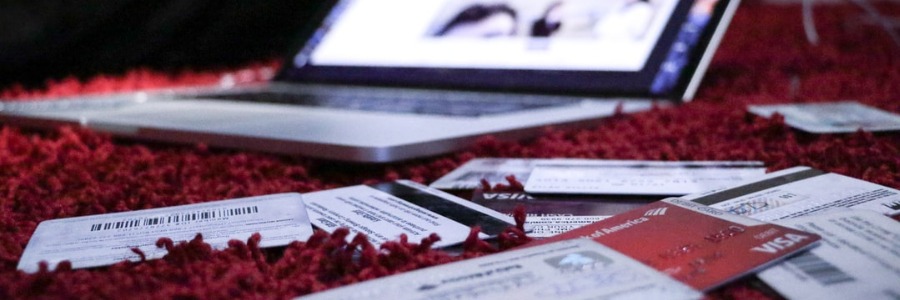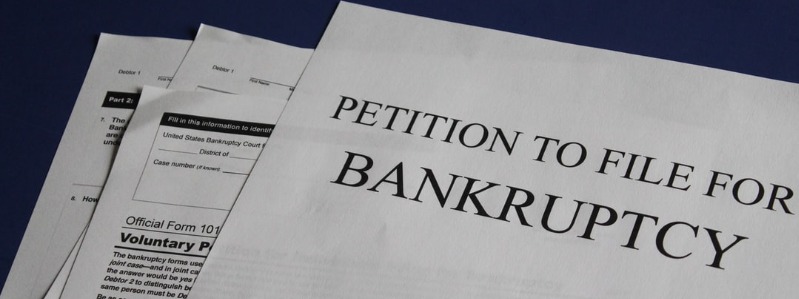Bankruptcy Articles

Is a 750 Credit Score after Chapter 7 Possible?
Rebuild Your Credit to 750 After Bankruptcy One of the biggest questions when considering bankruptcy is how it will affect your credit score, particularly if it’s a 750. You can…

How Long Does Chapter 7 Stay on your Credit Report
Chapter 7 Bankruptcy & Credit Reports One of the most common types of bankruptcy is Chapter 7 bankruptcy, which involves liquidating assets to pay off creditors. After going through this…

Foreclosure Defense Lawyers
Do I Need a Foreclosure Attorney? Wealthy mortgage holders are not immune from the possibility of foreclosure. In today’s tough economy, many high-end homeowners as well as middle-class homeowners have…

Florida Wage Garnishment Exemption
How To Stop Florida Wage Garnishment Florida’s Wage Exemption Statute provides relatively generous protection for those who meet the definition of “head of family” and are facing a judicial garnishment…

Can I File Bankruptcy if I am Behind in Child Support Payments?
Can I Include Child Support in Bankruptcy? Debtors who fall behind on making spousal or child support payments may be under the impression they cannot file for bankruptcy. In fact,…

So What Really is a Debt “Write-Off”?
Debt “Write Off” and “Charge Off” Does Not Mean What You Think it Means Have you ever had a debt “charged off” or “written off” on your credit report and…

What Happens to Garnished Funds After Filing Bankruptcy?
For debtors, the path they traveled which led to a bankruptcy is long and varied. There were generally many signs along the way that point towards a looming bankruptcy. For…

Rebuild Your Credit: File Bankruptcy
One of the biggest myths about bankruptcy is that it destroys your credit. People believe that if they file bankruptcy they will never again have good credit. But let’s look…

Bankruptcy Can Stop Lawsuits
Your creditors don’t want you to know this, but it’s true. Bankruptcy can stop lawsuits. Unfortunately, most people don’t do anything when a creditor sues them. They don’t even bother…

Bankruptcy and Auto Loans
File Bankruptcy And Stop Hiding From the Repo Man Did you know that filing bankruptcy will automatically take your name off the repo man’s list? That’s right. . .bankruptcy can…
Bankruptcy Lawyers
Emergency Bankruptcy Fillings – If you’re looking to stop foreclosure or wage garnishment, contact our bankruptcy attorneys with over 15 years of experience today! We can file your case TODAY! Do not let them file a lawsuit against you, take any money from your paycheck or bank account, or let them evict you from your home. We can help. You deserve to have your situation heard by our experienced bankruptcy attorneys and former U.S. Bankruptcy Trustee who focus solely on debt-relief. Let our team help you eliminate your debt and guide you to the fresh financial start you deserve.
Think About Your Bankruptcy Options
If you are considering bankruptcy as an option, it’s best to learn about the basics before you see a bankruptcy attorney. There are several bankruptcy options to choose from, and your unique individual circumstances will help determine what’s right for you. Going over the fundamentals of bankruptcy here will give you time to think about what you’re comfortable with before you discuss your case with the lawyer.
A Federal Matter
Bankruptcy is a federal matter that requires a trip to the federal courthouse in your area. Federal bankruptcy law has chapters that describe each type of bankruptcy, and the commonly used names for the bankruptcy options are these chapter numbers.
Chapter 11 Bankruptcy: For Businesses
Chapter 11 is generally just for businesses, although an individual could file a Chapter 11 bankruptcy. It involves reorganizing the finances of the business as a way to keep the business “afloat” even though it’s going bankrupt. The business gets to keep operating while the creditors get paid at least some of what is owed them.
Chapter 7 Bankruptcy
In a Chapter 7 bankruptcy, most or all of an individual’s or married couple’s debts are wiped out (the term used is “discharged”). The people filing the bankruptcy have to give up some or all of their non-exempt” property to help pay off creditors, such as:
- equity in a home, vacation home, another real estate
- expensive clothing such as furs
- high-price, non-essential electronic equipment
- expensive vehicles that the debtors do not require for their work
A completed Chapter 7 bankruptcy discharges the remaining debt, in a process that takes at least three to six months. Some bankruptcy courts are very busy these days, so find out from your attorney how long you can expect your bankruptcy to take.
Chapter 13 Bankruptcy
In a Chapter 13 bankruptcy, a debtor doesn’t have to give up any of his or her non-exempt property. However, this type of bankruptcy schedules a pay-off of most or all of the debts, over a specified period of time — generally three to five years. Thus, a Chapter 13 bankruptcy is a tool to consolidate your debts and possibly reduce your obligation. It can be the best option when a mortgage or car payments, unsecured debts such as credit cards or medical bills, or other debts are overwhelming you but you prefer to pay at least some of the debts.
Contact a Bankruptcy Attorney in Your Area
Bankruptcy is a serious step to take. Discuss your circumstances in-depth with an experienced bankruptcy attorney today, and begin your journey to financial recovery.

